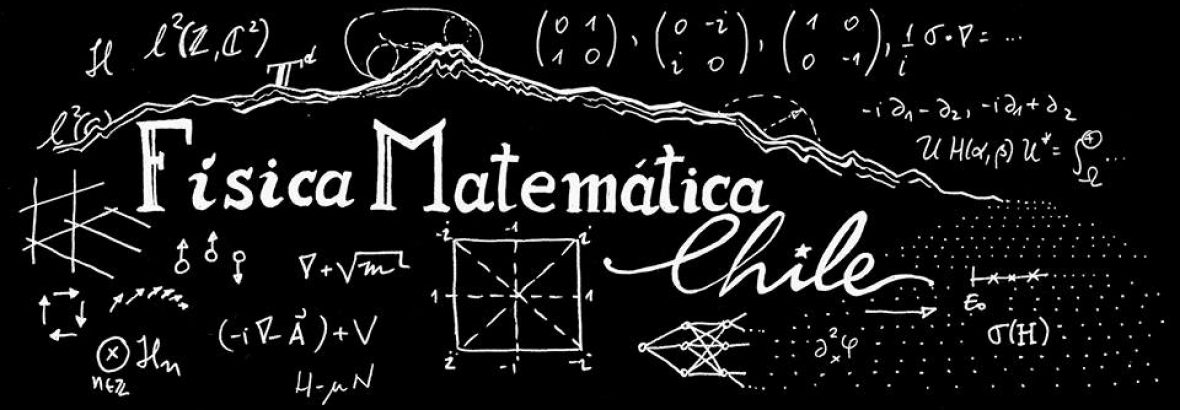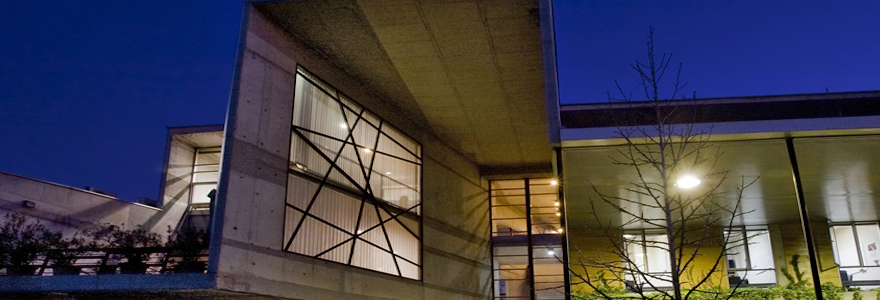From October 14 to 22, we will have the Spring School in Analysis and Mathematical Physics in Santiago at the Pontificia Universidad Católica de Chile. The school is directed to undergraduate and graduate students.
Guide:
Here is the schedule ,
Here is a list of titles and abstracts ,
Here are some course files to download ,
Here is a list of participants
– Oficial website of the Doctoral School in english –
– Página oficial de la Escuela Doctoral en español –
Schedule
Weak 1, October 14-18
| Mo 14.10. | Tu 15.10. | We 16.10. | Th 17.10. | Fr 18.10. |
|
|---|---|---|---|---|---|
| 9:00-9:30 | Welcome | ||||
| 9:30-10:00 | Course Krejcirik | Course Krejcirik | Course Rivière | Course Richard | |
| 10:00-11:00 | Talk P. Herreros | ||||
| 11:00-11:30 | coffee | coffee | coffee | coffee | coffee |
| 11:30-1:00 | Course Rivière | Course Rivière | tutorial C. Krejcirik (Sadel, Krejcirik) | Course Richard | Course Sirakov |
| 1:00-2:00 | lunch | lunch | lunch | lunch | lunch |
| 2:00-3:00 | Course Krejcirik | Talk R. Benguria | Talk O. Bourget | Talk C. Roman | Course Sirakov |
| 3:00-3:30 | coffee | coffee | coffee | ||
| 3:30-4:00 | Presentation graduate program | tutorial C. Riviere (Petrache) | Course Richard | tutorial C. Richard (Richard, Tiedra) | coffee |
| 4:00-5:00 | coffee | Club de Matematica Mariel Saez |
Weak 2, October 21-22
| Mo 21.10. | Tu 22.10. |
|
|---|---|---|
| 9:30-10:00 | Tutorial C. Sirakov (Kamburov) | |
| 10:00-11:00 | Talk A. Taarabt | |
| 11:00-11:30 | coffee | coffee |
| 11:30-12:30 | Course Sirakov | Talk M. Chuaqui |
| 12:30-1:00 | TOUR | |
| 1:00-2:00 | lunch | BBQ |
| 2:00-3:00 | interviews | |
| 3:00-3:30 | coffee | |
| 3:30-6:00 | interviews |
Program, Speakers and Abstracts
Courses
- Geometrical aspects of spectral theory, by David Krejcirik (Czech Technical University).
Abstract: Spectral theory is an extremely rich field which has found its application in many areas of physics and mathematics. One of the reason which makes it so attractive on the formal level is that it provides a unifying framework for problems in various branches of mathematics, for example partial differential equations, calculus of variations, geometry, stochastic analysis, etc.
The goal of the lecture is to acquaint the students with spectral methods in the theory of linear differential operators coming both from modern as well as classical physics, with a special emphasis put on geometrically induced spectral properties. We give an overview of both classical results and recent developments in the field, and we wish to always do it by providing a physical interpretation of the mathematical theorems.
- Operator algebras: what are they good for ?, by Serge Richard (Nagoya University).
Abstract: Operator algebras naturally appear when dealing with families of operators having common properties. From this point of view, they can be considered as a generalization of spectral theory of a single operator. Depending on the purpose and on the context, operator algebras can be of very different types. For the study of operators on Hilbert spaces, C*-algebras and von Neumann algebras are of the greatest interest.
Our aim for this mini-course is to introduce the concept of C*-algebras and to show how they can be effectively used for the study of operators on Hilbert space. In the first lecture we shall present the main definitions and deal with bounded operators only. During the second lecture, C*-algebraic technics will be used for the study of unbounded operators. In the final lecture, the key concepts of K-theory for C*-algebras will be introduced, and an application to Toeplitz operators will conclude this mini-course.
- Minmax methods in the calculus of variations of curves and surfaces, by Tristan Riviere (ETH Zürich).
Abstract: The study of the variations of curvature functionals takes its origins in the works of Euler and Bernouilli from the eighteenth century on the Elastica. Since these very early times, special curves and surfaces such as geodesics, minimal sur- faces, elastica, Willmore surfaces, etc. have become central objects in mathematics much beyond the field of geometry stricto sensu with applications in analysis, in applied mathematics, in theoretical physics and natural sciences in general. Despite its venerable age the calculus of variations of length, area or curvature function- als for curves and surfaces is still a very active field of research with important developments that took place in the last decades. In this mini-course we shall con- centrate on the various minmax constructions of these critical curves and surfaces in euclidian space or closed manifolds. We will start by recalling the origins of minmax methods for the length functional and present in particular the “curve shortening process” of Birkhoff. We will explain the generalization of Birkhoff’s approach to surfaces and the ”harmonic map replacement” method by Colding and Minicozzi. We will then recall some fundamental notions of Palais Smale deformation theory in infinite dimensional spaces and apply it to the construction of closed geodesics and Elastica. In the second part of the mini-course we will present a new method based on smoothing arguments combined with Palais Smale deformation theory for performing successful minmax procedures for surfaces. We will present various applications of this so called “viscosity method” such as the problem of computing the cost of the sphere eversion in 3-dimensional Euclidian space.
- Variational approach to boundary value problems, by Boyan Sirakov (Pontificia Universidade Católica do Rio de Janeiro)
Abstract: Assuming some knowledge of functional analysis and Lebesgue spaces, we start by making a brief introduction to Sobolev spaces. We develop the variational formulation of boundary value problems for ordinary and partial differential equations, and use basic results from functional analsis to show their solvability in an appropriate weak sense. If time permits, we will also discuss regularity of weak solutions.
Talks
- Can one hear the shape of a drum? by Rafael Benguria (Pontificia Universidad Católica de Chile)
Abstract: In 1966, Mark Kac wrote a, now classical, paper for the American Mathematical Monthly posing that appealing question. For that manuscript Mark Kac got the 1968 Chauvenet Prize for “mathematics expository writing” of the Mathematical Association of America. In this talk I will present a review of that problem which was eventually answered in the negative by C. Gordon, D. Webb and S. Wolpert in 1992.
- On Discrete Time Dependent Quantum Systems, by Olivier Francois Bourget (Pontificia Universidad Católica de Chile).
Abstract: After a review of various concepts involved in the study of quantum dynamical systems, we will illustrate them with models displaying spectral and dynamical transitions.
- Analysis of singularities in elliptic equations, by Carlos Román Parra (Pontificia Universidad Católica de Chile).
Abstract: In this talk I will discuss problems arising in mathematical physics and conformal geometry, whose common point is about the analysis of singularities in nonlinear elliptic partial differential equations. I will begin by analyzing the occurrence of quantized vortices in the Ginzburg-Landau model of superconductivity. Then, I will discuss the occurrence of “bubbling” in the classical problem in geometric analysis of prescribing the Gaussian or scalar curvature of a manifold.
- Boundary Rigidity problems in Geometry, by Pilar Herreros (Pontificia Universidad Católica de Chile).
Abstract: In general, boundary rigidity refers to the question of whether the metric on a manifold is determined by some data on the boundary. The classical problem is boundary distance rigidity, where the distance between boundary points is known. When this fails, we can study the scattering data of the region; for each point and inward direction on the boundary, it associates the exit point and direction of the corresponding unit speed geodesic. We will discus conditions on spaces where we have distance rigidity, scattering rigidity or lens rigidity, where the boundary data considered is the scattering data plus the length of each geodesic.
- Transport and localization properties in disordered models, by Amal Taarabt (Pontificia Universidad Católica de Chile)
Abstract: Electronic transport is a central object in the study of condensed matter. In this talk we discuss how random Schrödinger operators appear naturally as auxiliary models in the study of wave propagation in such materials, and its consequences on the transport and localization properties.
- Invariantes geometricos de curvas en el espacio, by Martin Chuaqui (Pontificia Universidad Carolina de Chile)
Abstract: Discutimos invariantes geometricos de curvas en el espacio con respecto al grupo de isometrias y al grupo de transformaciones conformes.
- Club de Matemática, El problema de la reina Dido, by Mariel Saez (Pontificia Universidad Católica de Chile)
Abstract: En la Eneida se relata que la reina Dido quizo comprar tierras al rey de los Berber y éste le ofreció tanto territorio como el que ella pudiese encerrar con una piel de buey. Dido encontró la mejor solución posible al problema y fundó el reino de Cartago, el cual fue uno de los mas importantes del Mediterraneo en la antigüedad.
¿Cuál fue la solución que propuso Dido? ¿Cuál es la formulación matemática de este problema y como se justifica la elección de Dido?
Course materials
- Krejcirik: Geometrical aspects of spectral theory:
Lecture notes, Tutorial Problems - Riviere: Minmax methods in the calculus of variations of curves and surfaces:
Lecture notes, Paper of Palais 1970, Tutorial Problems - Richard: Operator algebras: what are they good for?
Tutorial Problems
Organizers
Participants
| Alejandro Quiroga Triviño |
| Alfredo Soliz Gamboa |
| Alisson Cordeiro Alves Tezzin |
| Angela Andrea Flores Concha |
| Angela Patricia Vargas Mancipe |
| Artur Henrique de Oliveira Andrade |
| Boris Bermudez Cardenas |
| Carlos Alberto Santana Rosas |
| Cristóbal Ignacio Vallejos Benavides |
| Danilo Jose Polo Ojito |
| Danko Aldunate bascuñan |
| Fabian Domingo Caro Perez |
| Felipe Ignacio Flores Llarena |
| Fernando Rodriguez Avellaneda |
| Jaime Andrés Gómez Ortiz |
| Jarvin Javier Mestra Páez. |
| Javier Rolando Corregidor Maldoando |
| José David Beltrán Lizarazo |
| Juan Felipe Lopez Restrepo |
| Juan Manuel González Brantes |
| Katharina Klioba |
| Luciano Sciaraffia Rubio |
| Lukas Daniel Palma Torres |
| Lya Alejandra Hurtado Guzmán |
| Marcos Andrés Hermosilla Cartes |
| Mauro Javier Mendizábal Pico |
| Nora Christine Doll |
| Rubén Reinaldo Ariel Tobar Quiroz |
| Sandra Katherine Moreno Lemos |
| Sebastián Alajandro Muñoz Thon |
| Sebastian Camilo Puerto Galindo |
| Sebastian Cuellar |
| Simeona Quispe Monterola |
| Victor Eloy Ramos Marrugo |
| Wankar Fulguera Condori |
| Yikang Li |
| Yina Ospino Buelvas |
| Zamir David Beleño Rodriguez |

